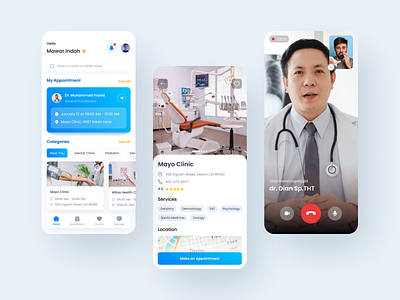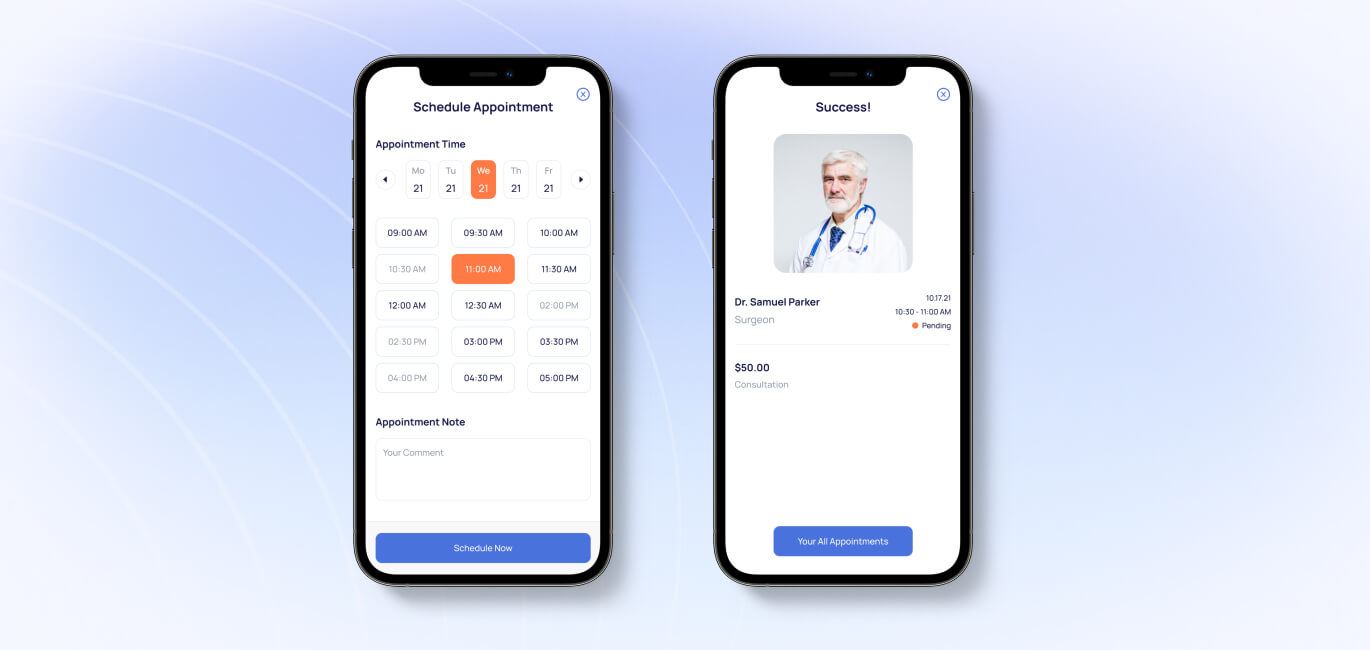Revolutionize Patient Treatment with a Mobile App for Clinics: Top Features to Consider
Revolutionize Patient Treatment with a Mobile App for Clinics: Top Features to Consider
Blog Article
The Future of Medical Care: Why Clinics Need a Mobile Application Today
As the healthcare landscape continues to evolve, clinics encounter placing stress to adjust to person assumptions for better comfort and accessibility. The integration of mobile applications can serve as a vital technique for enhancing client engagement and improving operations.
Changing Client Expectations
As the landscape of medical care develops, patient assumptions are undergoing a considerable transformation. Today's individuals are increasingly looking for benefit, accessibility, and individualized care.
In addition, clients are ending up being more informed and equipped, usually researching therapies and problems on-line prior to assessments. This increased understanding is paired with a need for openness in healthcare processes, including expense quotes and therapy alternatives. As an outcome, service providers are forced to adjust by embracing electronic devices that boost the person experience.
The assumption for efficient and prompt interaction has actually never ever been greater, with several people taking into consideration responsiveness a critical component of quality treatment. mobile app for clinics. In this advancing landscape, medical care companies need to acknowledge these altering expectations and leverage mobile applications to foster an extra patient-centric strategy, making certain that they not only satisfy but surpass the standards set by today's enlightened consumers
Enhancing Client Interaction

Mobile applications assist in interaction between clients and medical care companies, making it possible for real-time appointment scheduling, pointers for medicine adherence, and straight messaging attributes. These functionalities not only improve comfort yet additionally build a sense of responsibility among individuals. In addition, mobile applications can offer educational content tailored to individual needs, helping clients better comprehend their conditions and treatment choices.
The combination of gamification aspects within healthcare applications can likewise motivate people to take part in healthy habits, strengthening favorable way of living changes. By tracking development and fulfilling success, individuals are more probable to stay devoted to their wellness objectives. Eventually, enhancing person involvement with mobile applications results in improved wellness results, greater patient satisfaction, and an extra collective healthcare experience. Facilities that prioritize this element will likely see a significant impact on the top quality of care supplied.
Simplifying Clinic Workflow
Streamlining center procedures is vital for boosting workflow effectiveness and maximizing client treatment. The execution of mobile applications can considerably minimize management concerns, enabling doctor to focus much more on patient communications. By automating consultation organizing, patient check-ins, and billing procedures, clinics can minimize wait times and improve general functional performance.
Mobile apps also help with real-time accessibility to person documents, enabling healthcare experts to make educated choices swiftly. This immediacy not just boosts the top quality of treatment yet also reduces the possibility of errors connected with misplaced or dated info. Leveraging mobile technology supports an extra well organized strategy to handling individual follow-ups and treatment plans, ensuring that no critical actions are forgotten.
Furthermore, mobile apps can streamline inventory monitoring by giving clinics with devices to monitor medicines and materials efficiently. This permits prompt replenishment and assists avoid interruptions in person treatment because of equip shortages. By incorporating these performances into their day-to-day procedures, clinics can develop a much more cohesive and reliable atmosphere, eventually leading to boosted client end results and contentment. Accepting mobile technology is not simply a trend; it is a needed evolution in the medical care landscape.
Improving Communication Networks
Effective interaction is regularly cited as a foundation of quality health care shipment. In today's busy medical atmosphere, mobile applications Get More Information can significantly enhance interaction networks in between clinics, clients, and medical care suppliers. By incorporating mobile apps into their operations, centers can promote real-time communications, guaranteeing that clients get prompt details concerning their consultations, test results, and treatment plans.
Mobile apps also equip individuals to interact straight with their health care groups with safe and secure messaging attributes. This straight line of interaction cultivates a feeling of involvement and allows for immediate clarification of concerns, which can lead to better adherence to therapy methods. Moreover, press alerts can advise individuals of upcoming visits or medicine routines, decreasing no-show rates and improving total wellness end results.

Staying Competitive in Health Care
In a swiftly developing health care landscape, companies should focus on technology and adaptability to preserve an affordable side. The integration of mobile applications into medical care services is no longer optional; it is necessary for clinics aiming to improve person engagement, enhance procedures, and improve general solution distribution.
As people progressively depend on electronic systems for wellness monitoring, clinics that fail to adopt mobile technology threat falling back. A well-designed mobile application can provide features such as visit scheduling, telemedicine assessments, and accessibility to medical documents, providing patients with ease and promoting loyalty.

Rivals are also buying mobile remedies, so remaining in advance needs constant renovation and remaining educated about technical improvements. Centers need to not only apply mobile applications however additionally take part in normal updates and refinements. Eventually, the successful integration of mobile modern technology will certainly identify forward-thinking health care organizations and established the benchmark for patient-centric care in an electronic globe.
Conclusion
In verdict, the combination of mobile applications in clinics is important to attend to the evolving landscape of individual assumptions. Inevitably, the critical application of mobile applications stands for click over here now a crucial action toward delivering available site link and customized healthcare, thereby meeting the demands of today's empowered people.
Eventually, enhancing patient engagement through mobile applications leads to boosted wellness outcomes, greater individual contentment, and an extra joint health care experience.Mobile applications also assist in real-time accessibility to patient documents, allowing healthcare specialists to make informed choices quickly. In today's hectic clinical atmosphere, mobile applications can significantly improve communication channels in between centers, patients, and healthcare suppliers.Mobile applications likewise encourage individuals to connect straight with their healthcare teams through protected messaging attributes. Ultimately, the critical implementation of mobile apps stands for an important step towards delivering customized and easily accessible medical care, consequently satisfying the requirements of today's encouraged clients.
Report this page